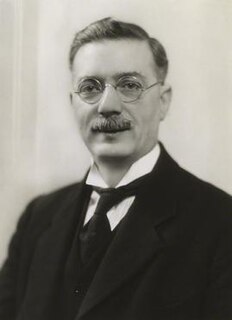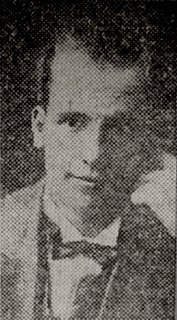Related Research Articles

Robert Williams was a British trade union organiser.
The Miners' Federation of Great Britain (MFGB) was established after a meeting of local mining trade unions in Newport, Wales in 1888. The federation was formed to represent and co-ordinate the affairs of local and regional miners' unions in England, Scotland and Wales whose associations remained largely autonomous. At its peak, the federation represented nearly one million workers. It was reorganised into the National Union of Mineworkers in 1945.
John George Hancock was a Liberal Party politician and Trade Unionist in the United Kingdom.

Thomas Richards was a Welsh trade unionist and politician.
William Carter was a Labour Party politician in the United Kingdom.
Ebenezer Edwards was a trade unionist and politician in Britain.

Herbert Smith was a British trade unionist and miner.

George Alfred Spencer was an English miner, trade union leader and Member of Parliament from 1918 to 1929 for Broxtowe.

Joseph Jones was a British trade unionist.

The Nottinghamshire Miners' Association was a trade union representing coal miners in Nottinghamshire, in England.
Sir Sidney Ford, MBE was a British trade union leader.

William Edwin Harvey, known as W. E. Harvey, was a British Lib-Lab Member of Parliament.
Jack W. Smith was a British trade unionist.
Aaron Stewart was a British trade unionist.
Joseph Robert Alwyn Machen was an English trade union leader who was president of the Yorkshire Area of the National Union of Mineworkers and posthumously elected president of the National Union of Mineworkers.
The Fife and Kinross Miners' Association was a coal miners' trade union based in Fife and Kinross-shire in Scotland.
William Bailey was a British trade unionist.
Thomas Aspinwall was a British trade unionist.
George Henry Jones was a British trade unionist and politician.
This article is about the sponsorship of British Members of Parliament by mining trade unions.
References
- ↑ Report of the Annual Conference and Special Conference of the Labour Party (1978), p.87
- ↑ Alan R. Griffin, The Miners of Nottinghamshire, vol.I, p.173
- 1 2 3 4 Alan R. Griffin, The Miners of Nottinghamshire, vol.II, p.39
- ↑ Griffin, A. R. (1971). Mining in the East Midlands 1550-1947. Cass. p. 222. ISBN 071462585X.